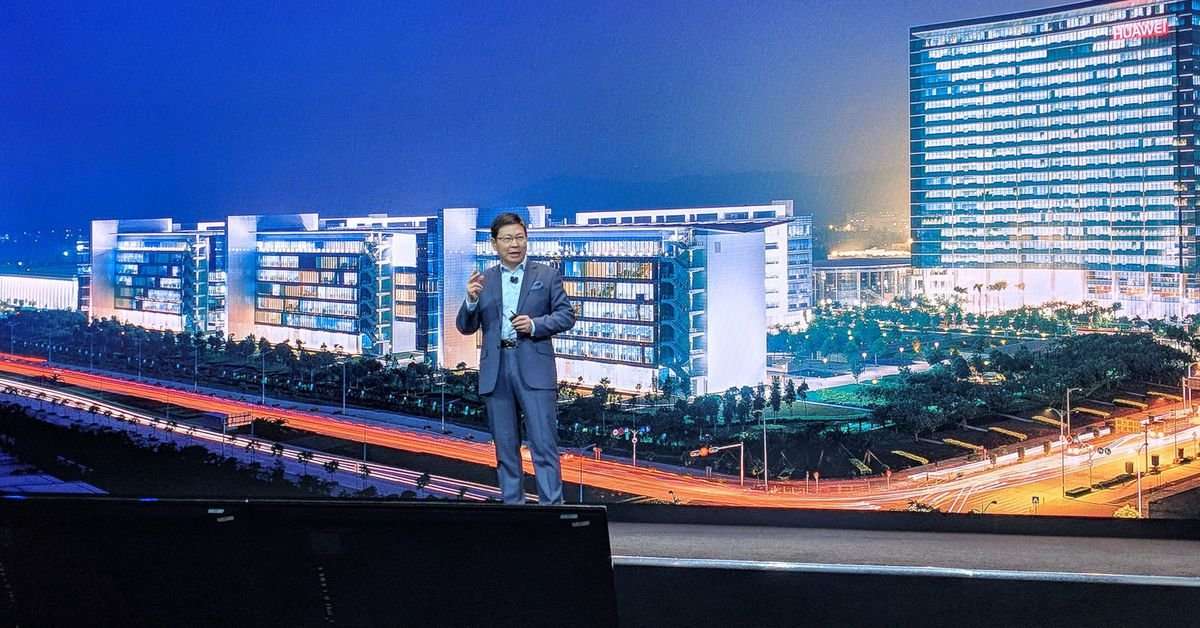At its worst, CES is an insufferable barrage of cliches, buzzwords, and other rehearsed insincerities, but today I saw a little glimpse of the big technology show at its best, and I really enjoyed it.
Richard Yu, the CEO of Huawei’s consumer products division, just spent a solid hour mumbling his way through an awkwardly scripted presentation of the Mate 10 Pro for the US market. He stammered, he hesitated, and he was obviously uncomfortable on stage. Part of his discomfort could probably be explained by AT&T’s last-minute decision to pull out of a deal to sell Huawei’s phones in the US. This was supposed to be Huawei’s big moment in the American spotlight, and AT&T pulled the rug out from under the Chinese company.
Reports indicate that the carrier’s decision was driven by political pressure within the US, with apparent concern about Chinese espionage — and Huawei’s particular role in that — underlying the whole thing.
The Huawei boss did something unexpected at the end of his keynote, however. Framed by a simple slide reading “Something I Want to Share,” Yu proceeded to address the failure of Huawei’s carrier deal directly. Shedding the earlier hesitation in his speech, he made the point that American phone buyers can’t have the best and widest choice of device if Huawei products — those of the world’s third-biggest phone vendor — weren’t on offer. “Everybody knows that in the US market that over 90 percent of smartphones are sold by carrier channels,” he said. “It’s a big loss for us, and also for carriers, but the more big loss is for consumers, because consumers don’t have the best choice.”
Harkening back to the beginning of his Huawei career 25 years ago, Yu radiated a quiet anger at the mistrust his company is being subjected to. He said Huawei faced plenty of doubters in its native China too, being an almost total newcomer to consumer devices six years ago. “We win the trust of the Chinese carriers, we win the trust of the emerging markets... and also we win the trust of the global carriers, all the European and Japanese carriers,” he said. “We are serving over 70 million people worldwide. We’ve proven our quality, we’ve proven our privacy and security protection.”
I craned my neck to look at the teleprompters behind me and they were blank. Yu’s most inspired and most eloquent speech, it turned out, was being delivered without any external help. It might have been just another clumsy presentation, but at the end of it, a little bit of genuine passion came to the surface. And now I’m starting to think every tech keynote should be led by a mildly simmering CEO.

darkknightxda on January 10th, 2018 at 02:33 UTC »
Anyone have a transcript?
selfobsessedandsexee on January 10th, 2018 at 02:29 UTC »
What I don't get is if they really think Huawei is spying for China why not get a Huawei phone and check if it sends data back to China. This sort of thing shouldn't be hard to prove or disprove. Why is AT&T basing it's decisions on suspicion and rumor.
hiredantispammer on January 10th, 2018 at 01:38 UTC »
The fact that there was nothing on the teleprompter for that speech really speaks for the passion Huawei has and the frustration they are going through.
Say what you want about Huawei devices, the same thing happens to most non-Apple and non-Samsung devices. Most of the world outside of the US have a much more diverse smartphone market simply because most people either buy unlocked or there are far more carrier options who welcome more brands to strike deals with them.
Just think about this: Huawei, the 3rd largest smartphone vendor, can't sell in the US through carriers, but OnePlus, which has a fraction of the presence, can sell through O2 in the UK.